Often underestimated as mere accompaniments to meals or quick refreshments, beverages can significantly influence your overall health. It's crucial to be aware of what you drink, how much you consume, and the frequency of certain beverage choices, as they can have profound implications for your well-being. In fact, specific drinking habits have been identified as potential contributors to weight gain.
A recent study published in Nutrients in 2021 shed light on the long-term risks associated with increased consumption of unhealthy beverages, including sugar-sweetened beverages (SSBs) and artificially-sweetened beverages (ASBs). The findings revealed a higher susceptibility to type 2 diabetes (T2D), cardiovascular diseases (CVDs), and all-cause mortality. Additionally, numerous other studies have established links between sugary beverage consumption and various health issues such as kidney disease, non-alcoholic liver disease, gout, oral health problems, obesity, and weight gain, as reported by the CDC.
These findings raise concerns, particularly considering that approximately 50% of American adults consume at least one sugary beverage per day, as highlighted by the National Health and Nutrition Examination Survey. For women, this translates to an average of 113 kilocalories (kcal) or over 6% of their recommended daily caloric intake, while men consume even more at 179 kilocalories, nearly 7% of their daily recommended intake.
To put things into perspective, a 12-ounce serving of a sports drink contains approximately 5 teaspoons of sugar and 97 calories, while brewed sweet tea contains 9 teaspoons of sugar and 115 calories, according to the USDA Food Data Central. Fruit drinks, often perceived as a healthier option, can pack around 10 teaspoons of sugar and 186 calories, while various types of soda range from 10 to 13 teaspoons of sugar and 155 to 195 calories.
It's evident that certain drinking habits unknowingly contribute to excess calorie and sugar intake, potentially leading to weight gain. To help you navigate this issue, dietitians have provided invaluable insights into the drinking habits that may be impacting your weight.
1) Sweetened Tea

Tea is renowned for its various health benefits, from soothing nausea to reducing the risk of diabetes and promoting longevity. However, when it comes to sweet tea or heavily sugared hot tea, the potential drawbacks may outweigh the advantages.
According to Johna Burdeos, RD, "Drinking sweetened beverages like tea with added sugar can contribute to weight gain. These drinks are high in calories but fail to provide a sense of fullness or satiety. Moreover, their pleasant taste can lead to excessive consumption in one sitting or throughout the day."
Nicole Chenard, MS, RD, LDN, explains, "Sugar-sweetened beverages, such as sweet tea, can quickly add up the calories. Take, for instance, a 20-ounce bottle of Lipton Green Tea Citrus, which contains 120 calories and 29 grams of added sugars."
Catherine Gervacio, RD, and nutrition writer for Living.Fit, points out, "Sweetened tea contains added sugar, resulting in an excess of calories. Sugar causes a rapid spike in blood sugar levels, triggering the release of cortisol and adrenaline to manage the body's stress response. Additionally, chronic consumption of excessive sugar can lead to leptin resistance, a hormone responsible for regulating fat storage and appetite."
2) Sugary, Flavored Coffee Choices
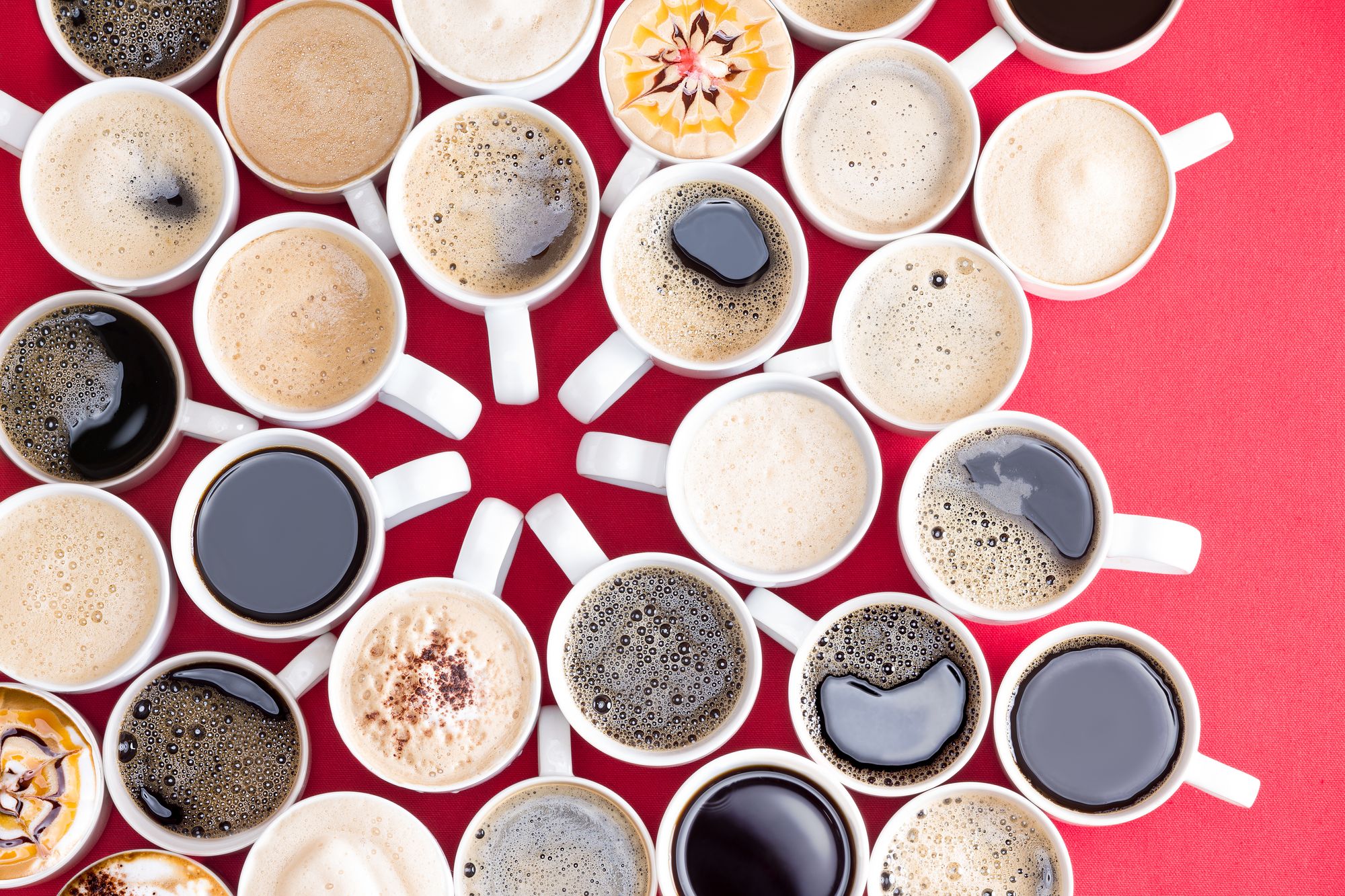
When you visit your favorite coffee shop, it's worth considering the calorie content of your beverage selection. Dietitians caution against some of the worst drinks on the menu, which often include sugary, flavored coffee options. Nicole Chenard advises, "Flavored coffee can contribute to rapid weight gain." While a single pump of flavor like vanilla, mocha, caramel, or peppermint typically contains around 20 calories from added sugar, certain syrups can contain even more.
Chenard points out, "Many popular coffee shop drinks incorporate two to eight pumps of flavor, adding a staggering 160 calories from added sugar to kickstart your day (which is arguably the worst time to introduce such a high amount of added sugar into your system)." It's important to note that an extra 250 calories per day is all it takes to gain half a pound each week, which amounts to 2 pounds in a month.
Catherine Gervacio emphasizes that sugars are "empty calories" lacking significant nutrients apart from providing calories. The caffeine content in coffee has mixed effects on weight loss. On one hand, caffeine can enhance metabolism and aid in weight loss. On the other hand, it can disrupt normal sleep patterns, affecting metabolism and potentially leading to weight gain.
Moderation is key, as Gervacio explains, "The recommended daily intake of caffeine is less than 400 milligrams, equivalent to approximately 3-4 cups of coffee. This is generally considered safe for the average person. However, individuals at risk of hypertension or cardiovascular disease should consult a doctor to determine their caffeine limits."
3) Water Enhancements
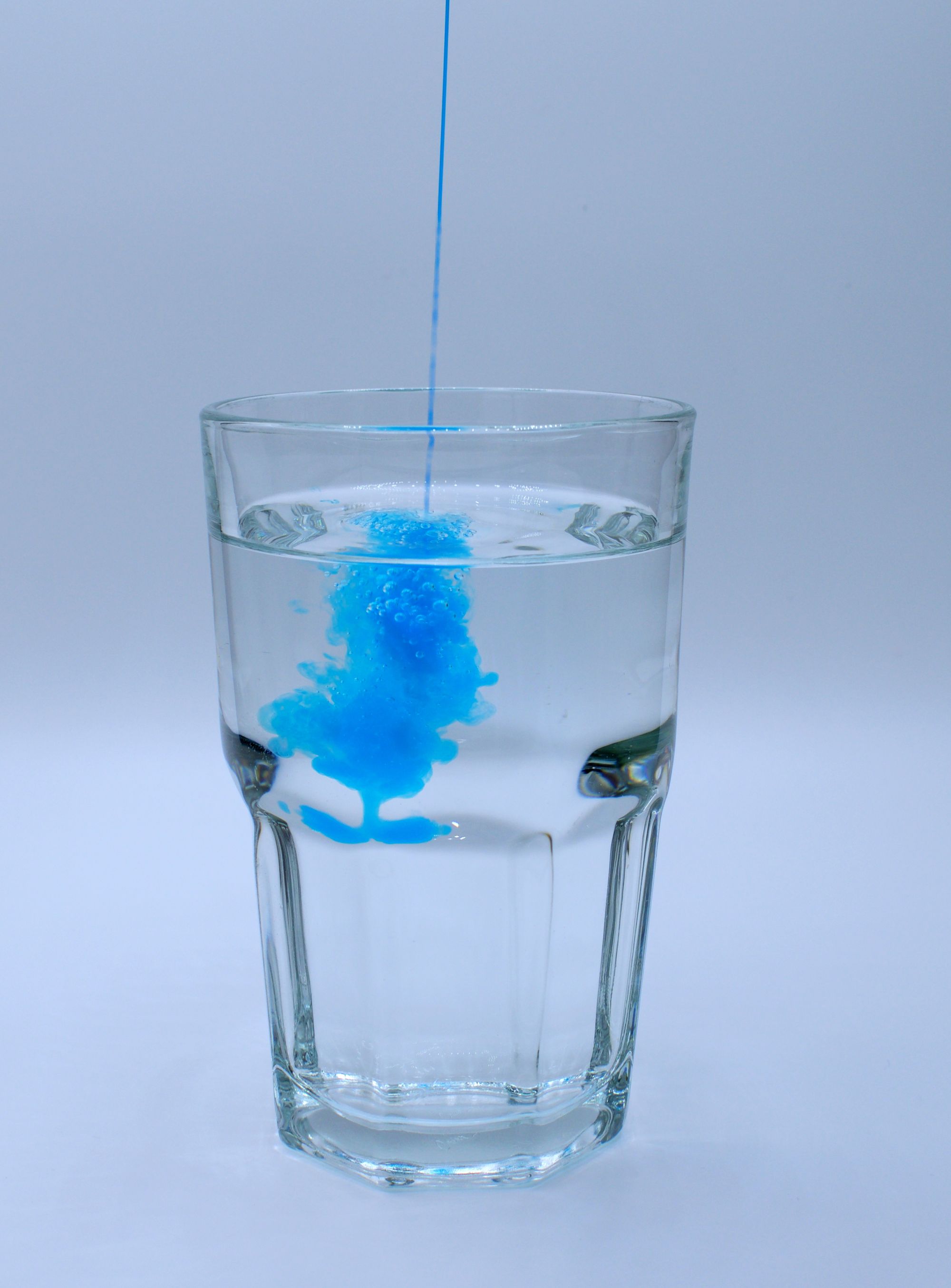
Enhanced water products claim to provide an extra dose of vitamins, minerals, and electrolytes, making them appear healthier than plain water. However, experts caution against falling for these marketing tactics. Bonnie Liebman, director of nutrition at the Center for Science in the Public Interest, warns that most of these claims are mere strategies to sell water at inflated prices, lacking scientific evidence and true health benefits. Furthermore, Walter Willett, professor of epidemiology and nutrition at Harvard's School of Public Health, categorically states that enhanced water products are unequivocally harmful to health.
Choosing the wrong water enhancements can be a gamble, as Nicole Chenard advises. Liquid calories, regardless of their natural or artificial origins, can have a significant and rapid impact on our energy levels, leading us to believe that we need more of these "enhanced" beverages. It is crucial to carefully examine the label of such products. Chenard suggests checking the calorie content, calories per serving, added sugars, protein, fat, fiber, and ingredients list. Beware of deceptive marketing techniques that utilize attractive images, colors, and fonts. Just because a product appears healthy does not mean it truly is. Additionally, if a water enhancement contains no added sugars but relies on no-calorie sweeteners, it is not beneficial and can impede weight loss and overall health goals.
Catherine Gervacio notes that as long as enhanced water has no calories, it will not significantly contribute to weight gain. However, the presence of added sugars is a downside to consider. Excessive consumption of these beverages can lead to adverse effects, such as disrupting the body's electrolyte balance. Symptoms may include headaches, nausea, vomiting, and muscle cramps. Imbalances in electrolyte levels can also contribute to temporary water weight gain.
4) Sports Drinks.
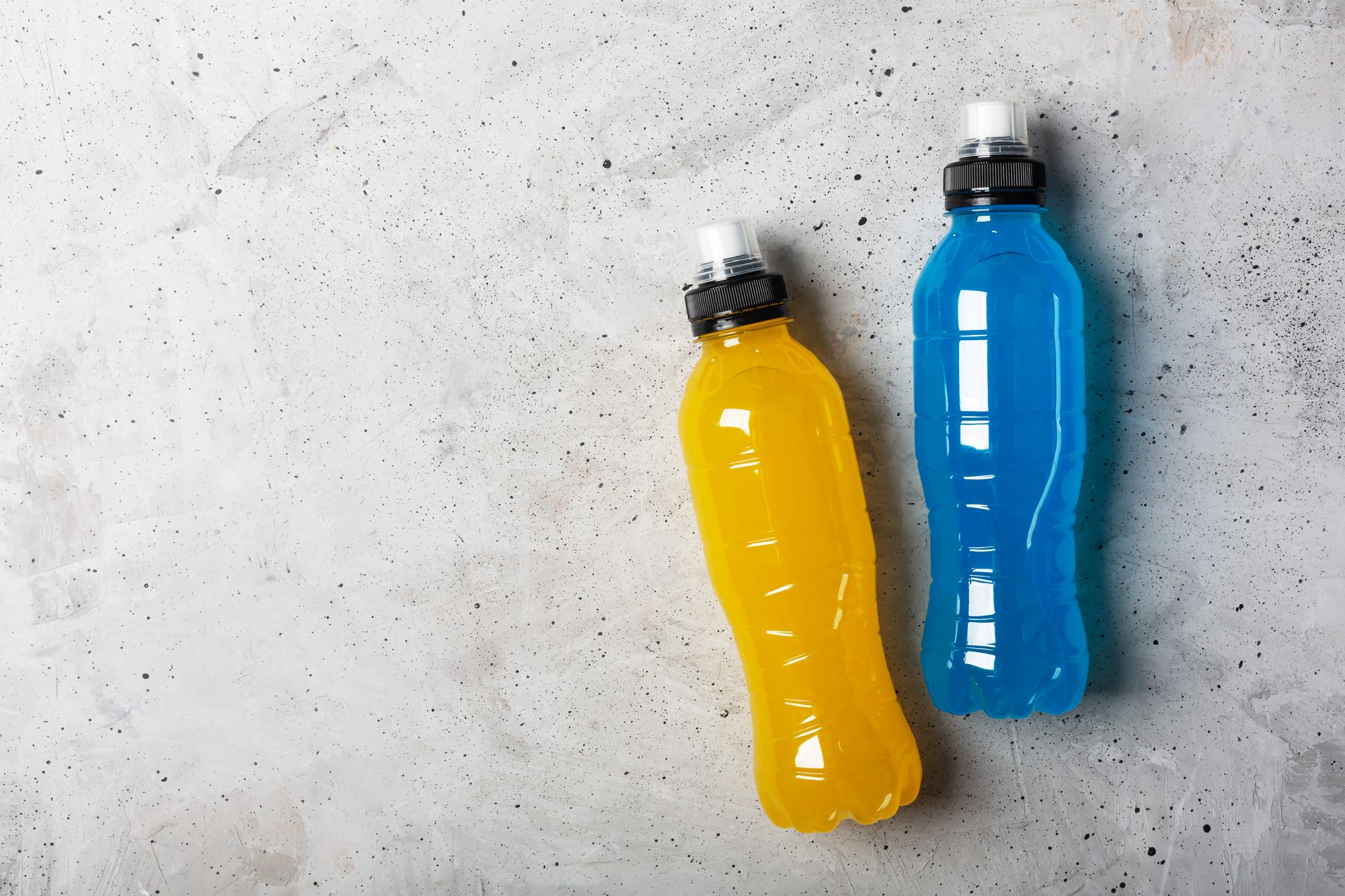
While sports drinks may seem like a healthy choice, it's best to leave them on the store shelf if you're not an athlete or engaging in intense physical activity. These drinks are specifically designed to replenish electrolytes lost during sports or vigorous exercise.
Nicole Chenard explains that sports drinks serve their purpose in hydrating athletes during and after physical activity, but consuming them while inactive or without a need for electrolyte replenishment won't benefit your health. The inclusion of some sugar in sports drinks helps transport electrolytes into the cells for proper hydration, making "sugar-free" options less suitable for both athletes and the average person.
Consider the sugar content: a 12-ounce serving of cola contains around 39 grams of sugar, while sports drinks usually contain no less than 21 grams, according to the Harvard T.H. Chan School of Public Health. Catherine Gervacio emphasizes that added sugar contributes to calorie intake, and an imbalance in electrolytes can lead to water weight gain. Additionally, some sports drinks may contain caffeine, which can either boost metabolism and aid in weight loss or disrupt sleep patterns and slow down metabolism, potentially causing weight gain.
5) Sugary Fruit Juice

Although fruit juice may seem like a healthy choice for weight loss, it's important to reconsider its impact. Johna Burdeos warns, "Sugary drinks can increase your appetite." She explains that regular consumption of sugary foods and drinks leads to blood sugar spikes and crashes, triggering feelings of hunger. This can create a greater urge to eat more than you would if your blood sugar levels were stable.
Nicole Chenard emphasizes the difference between fresh or frozen fruit and fruit juice, stating, "It's better to eat fresh or frozen fruit than to drink fruit juice." She points out that fruit juice lacks fiber, making it similar to drinking soda in terms of sugar content. For weight management, it's preferable to consume the whole fruit rather than opting for juice.
Catherine Gervacio adds valuable insights regarding the glycemic index (GI) of fruit juices compared to whole fruits. Fruit juices have a higher GI, causing blood sugar levels to rise rapidly. Gervacio explains that when the body cannot utilize all the sugar for energy, it is stored as fat. This commonly occurs in the abdominal area, leading to the accumulation of belly fat.
6) Not Enough Protein in Shakes.
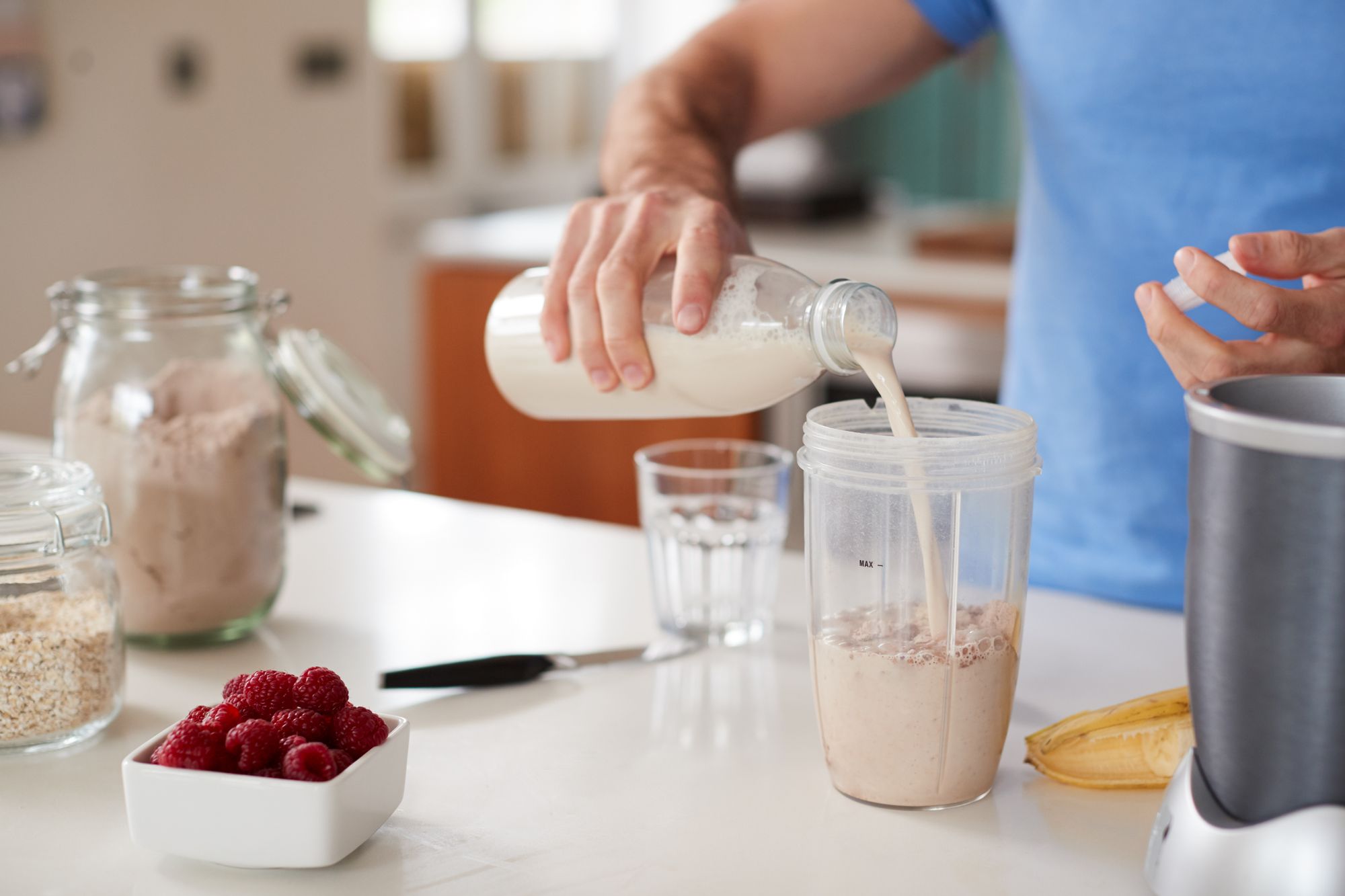
Smoothies can be a fantastic addition to your health routine, given the right ingredient choices. However, it's crucial to address the potential risks of low-protein smoothies. Nicole Chenard explains that most smoothies available or made at home lack sufficient protein, which can be detrimental to our bodies. Consuming high amounts of sugar without the balance of healthy fats and protein can overwhelm our bodies' ability to handle and metabolize it efficiently. This leads to an excess of sugar in the blood, posing a problem. Additionally, inadequate water intake (plain water) can also be problematic.
Catherine Gervacio emphasizes the importance of moderate protein intake for building lean muscles, increasing satiety, and promoting fat loss. While low-protein smoothies are not inherently wrong, protein can still be obtained from other meals. However, insufficient protein consumption may lead to weight gain due to increased appetite. Furthermore, inadequate amino acids from protein can impede muscle repair and development, causing delays or poor muscle growth.
To ensure a balanced and beneficial smoothie experience, opting for high-protein smoothies is recommended. These smoothies provide both health benefits and enjoyable flavors, while adequately addressing your protein needs.
7) Sodas
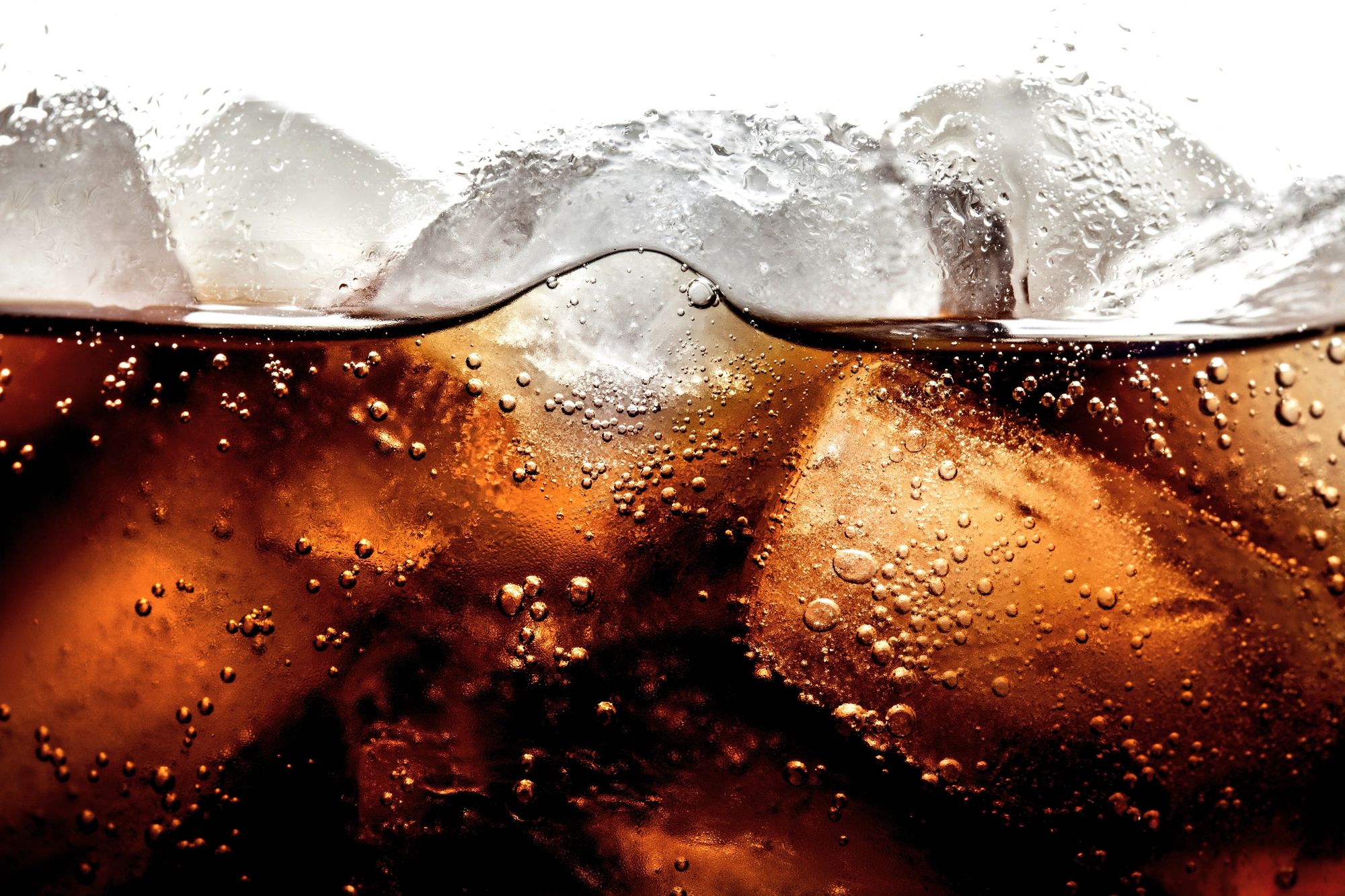
Soda, with its abundant added sugar content, not only adds to your calorie intake but also stimulates your appetite, as Catherine Gervacio points out. A 12-ounce serving can contribute approximately 150 calories, along with 37 grams of sugar, devoid of protein or fiber.
Regular consumption of sugary drinks can lead to insulin resistance, warns Johna Burdeos. Insulin resistance occurs when the body becomes less effective at using insulin to regulate blood sugar levels. This can result in increased fat storage and subsequent weight gain.
In addition, sugary drinks contain a significant amount of fructose. Burdeos explains that fructose is primarily metabolized in the liver rather than being directly absorbed into the bloodstream like glucose. High consumption of fructose can lead to fat accumulation in the liver and around the abdominal area.
8) Frequntly Drinking Alcohol

Regularly consuming too much alcohol can have significant implications, as highlighted by experts. Johna Burdeos points out that alcohol contributes calories to your diet and can make you feel sluggish, reducing your inclination for physical activity. It also disrupts metabolism, interferes with sleep, and can lead to weight gain, as a lack of quality sleep is associated with weight gain. Additionally, alcohol lowers inhibitions, potentially leading to poor dietary choices and overeating.
Nicole Chenard explains that alcohol places stress on the entire system, with the body metabolizing alcohol as a priority due to its toxic nature. This makes it challenging for the body to function optimally, let alone focus on weight loss. Alcohol is calorie-dense, containing 7 calories per gram, making it nearly twice as calorically dense as carbohydrates and protein. The caloric content of alcohol can contribute to weight gain, similar to fat, as it can be efficiently converted to fat by the body.
However, Catherine Gervacio notes that drinking alcohol in moderation can have certain benefits. According to the CDC, the recommended amount is 1-2 drinks per day, with red wine considered a healthier choice due to its antioxidant content, including polyphenols and resveratrol.
Nevertheless, excessive alcohol consumption can lead to weight gain. Alcohol falls between carbohydrates and fat in terms of caloric density. While carbohydrates have 4 calories per gram and fat has 9 calories per gram, alcohol contains 7 calories per gram. This means that when not utilized by the body, alcohol can readily convert to fat. Excessive alcohol intake can also contribute to fatty liver disease, which is associated with high levels of visceral fat.
9) Non-Light Beer.
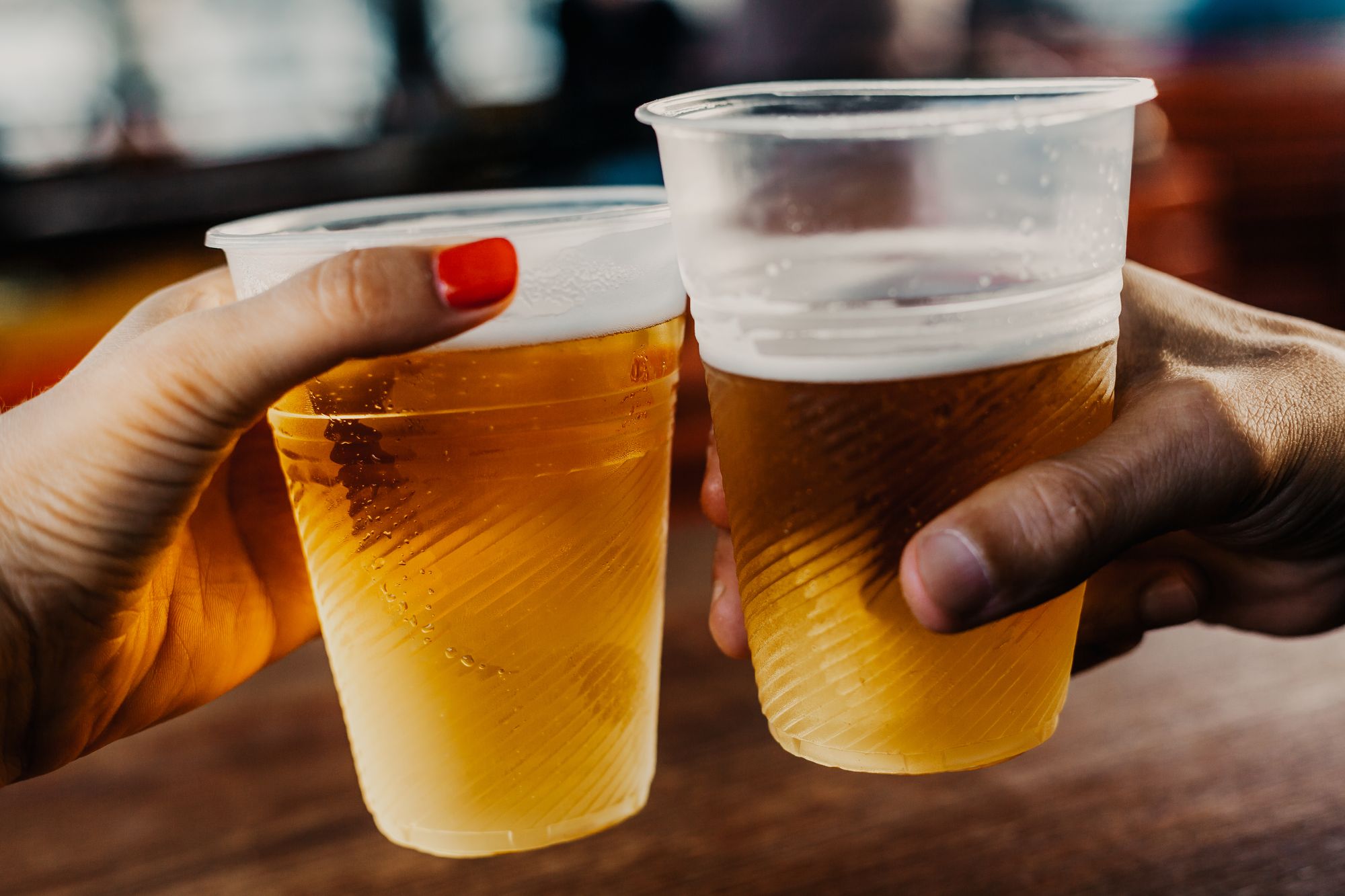
Even if you strive to maintain a moderate alcohol intake, the type of alcoholic beverages you choose can still affect your health and weight, particularly if you're not opting for low-calorie beer. Nicole Chenard highlights the importance of being mindful of your calorie budget, as high-calorie beer can significantly contribute to calorie intake. With 7 calories per gram of alcohol, the calories can add up rapidly.
Catherine Gervacio emphasizes that high-calorie beer is dense in calories and, as a result, the excess calories can be stored as fat. A typical can of beer contains around 150 calories without providing protein or fiber. Furthermore, alcohol can disrupt sleep patterns, potentially slowing down metabolism and leading to weight gain.
10) High Calorie Cocktails.

Contrary to popular belief, your favorite cocktail may not be any healthier than a high-calorie beer. Catherine Gervacio explains that cocktails contribute to calorie intake through added sugars, while also containing alcohol that can lead to weight gain. Alcohol has the potential to stimulate appetite, resulting in increased food consumption. Scientific studies published in Nature and Physiology & Behavior have established a link between alcohol and elevated food intake.
Nicole Chenard highlights the importance of recognizing that when it comes to sugary cocktails, sugar is still sugar, and when combined with alcohol, it becomes a recipe for weight gain. Instead, she suggests considering alternatives such as soda water with a hint of lemon or lime for added flavor without delving too deeply into your calorie budget.
11) Not Hydrating
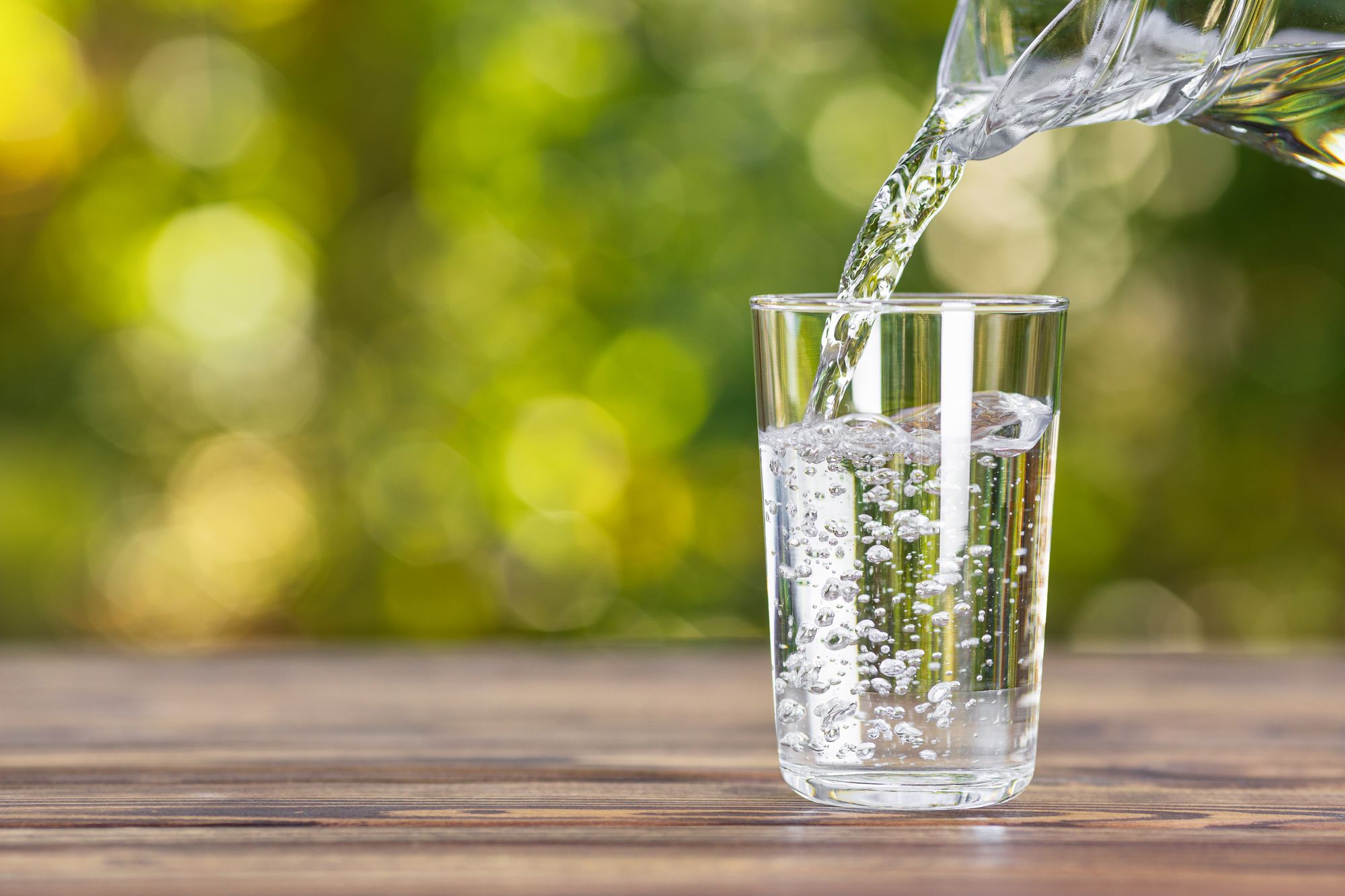
When you neglect drinking enough water, you may experience thirst, but it's common to mistake it for hunger, leading to overeating instead of quenching your thirst. Johna Burdeos explains that waiting until you feel thirsty is a sign of slight dehydration since the body's thirst signals are delayed.
Moreover, the need for water can prompt unhealthy beverage choices. Nicole Chenard highlights that often we reach for sugary drinks like soda, sweet tea, or fruit juice when we think we're thirsty. However, what we truly need is water, which energizes us, lubricates our organs, regulates body temperature, and aids in toxin removal from the brain and blood. Sugary beverages trick our brains into thinking our thirst is satisfied, but their sugar and other ingredients create more work for our bodies, leading to a further need for water.
Insufficient water intake can also lead to various issues. Catherine Gervacio explains that not drinking enough water disrupts the body's normal electrolyte balance, affecting its overall function. This can hinder metabolism and efficient fat burning, as well as trigger cravings due to water depletion.

